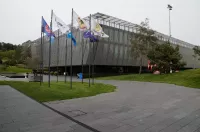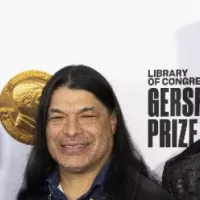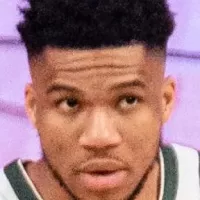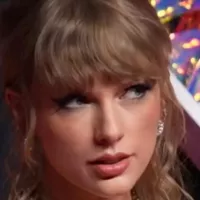Seychelles is an archipelagic island country in the Indian Ocean, comprised of 155 islands. Victoria serves as its capital and largest city, situated 1,500 km east of mainland Africa. Neighboring island nations include the Maldives, Comoros, Madagascar, and Mauritius. Seychelles holds the distinction of being the smallest country in Africa and the least populated sovereign African nation, with an estimated population of approximately 100,600 as of 2022.
1903: Separate crown colony from Mauritius
In 1903, Seychelles became a separate crown colony from Mauritius.
1903: Creation of the Supreme Court of Seychelles
The Supreme Court of Seychelles was created in 1903, serving as the highest trial court and the first court of appeal from lower courts and tribunals.
1910: Tombs visible at Anse Lascars
Until 1910, tombs were visible at Anse Lascars on Silhouette Island, conjectured to belong to later Maldivian and Arab traders visiting the archipelago.
1944: Government Responsibility for Secondary Schools
Even after the government became responsible for secondary schools in 1944, the Catholic mission continued to operate boys' and girls' secondary schools with religious brothers and nuns from abroad.
1959: Opening of Teacher Training College
In 1959, a teacher training college opened in Seychelles, leading to an increase in locally trained teachers and the establishment of new schools.
1965: Donald Prell's Economic Report
In 1965, futurist Donald Prell prepared an economic report for the Governor General, outlining a scenario for the future of the Seychelles economy.
1966: Elections held in Seychelles
Elections were held in Seychelles in 1966.
1970: Elections held in Seychelles
Elections were held in Seychelles in 1970.
1971: Opening of Seychelles International Airport
In 1971, with the opening of Seychelles International Airport, tourism became a significant industry, dividing the economy into plantations and tourism.
1976: Independence as a British Colony
In 1976, Seychelles gained independence as a British colony, maintaining its Creole heritage despite never being inhabited by indigenous people.
1976: Independence from the United Kingdom
In 1976, Seychelles gained independence from the United Kingdom as a republic and became a member of the Commonwealth.
1976: Independence of Seychelles
Since gaining independence in 1976, Seychelles has seen its per capita output expand to approximately seven times its previous level, largely due to growth in the tourism sector.
June 1977: France-Albert René comes to power
On 5 June 1977, France-Albert René came to power after his supporters overthrew the first president, James Mancham, in a coup d'état.
1977: Coup
Following the coup in 1977, the president always represented the same political party until the October 2020 elections.
1977: Coup d'état by France Albert René
In 1977, a coup d'état led by France Albert René ousted James Mancham, the first president of the republic.
1979: US, France, and South Africa support plots to overthrow government
Between 1979, various plots to overthrow the non-aligned government of France-Albert Rene were supported by the United States, France, and South Africa.
1979: Socialist one-party state
In 1979, the constitution declared Seychelles a socialist one-party state.
1981: Seychelles coup d'état attempt
In 1981, Mike Hoare led a team of South African mercenaries in the Seychelles coup d'état attempt, resulting in a gun battle at the airport and the hijacking of an Air India plane.
1981: Free Education System
Since 1981, Seychelles has implemented a system of free education, requiring attendance for all children in grades one to nine, starting at age six.
1983: US, France, and South Africa support plots to overthrow government
Between 1983, various plots to overthrow the non-aligned government of France-Albert Rene were supported by the United States, France, and South Africa.
1986: Attempted coup led by Ogilvy Berlouis
In 1986, an attempted coup led by the Seychelles Minister of Defence, Ogilvy Berlouis, prompted President René to request assistance from India. The Indian Navy's Nilgiri-class frigate Vindhyagiri arrived in Port Victoria to help avert the coup.
1990: United States' military lease expires
In 1990, the United States' military lease in the country was set to expire.
1991: End of the socialist one-party state
In 1991, the socialist one-party state in Seychelles came to an end.
1992: Failure to receive voters of new constitution
In 1992, the first draft of a new constitution failed to receive the requisite 60% of voters.
1993: Ramkalawan as opposition MP
From 1993, Wavel Ramkalawan served as an opposition MP.
1993: Approval of amended constitution
In 1993, an amended version of the constitution was approved.
1993: Introduction of multi-party system
René ruled as a strongman under a socialist one-party system until 1993, when he was forced to introduce a multi-party system.
1994: Inauguration of the National Art Gallery
In 1994, the National Art Gallery was inaugurated during the official opening of the National Cultural Centre, which also houses the National Library and National Archives.
August 1996: Closure of the Indian Ocean Tracking Station
In August 1996, the United States' Air Force Satellite Control Network's Indian Ocean Tracking Station on Mahé was closed after the Seychelles government attempted to raise the rent to over $10,000,000 per year.
1998: Ramkalawan as Leader of the Opposition
From 1998, Wavel Ramkalawan served as the Leader of the Opposition.
1998: Coral Bleaching
In 1998, coral bleaching damaged most reefs in Seychelles, though some reefs, like those around Silhouette Island, showed signs of recovery.
2004: René steps down in favour of James Michel
In 2004, René stepped down as president in favor of his vice-president, James Michel.
2005: Oil Exploration Deal with Petroquest
In 2005, Seychelles signed a deal with US firm Petroquest, granting it exploration rights to approximately 30,000 km² around Constant, Topaz, Farquhar, and Coëtivy islands until 2014.
2006: James Michel re-elected as president
James Michel was re-elected as president of Seychelles in 2006.
2008: Currency Devaluation
In 2008, the Seychellois rupee, the national currency, was unpegged from its basket of international currencies and allowed to devalue and float freely, with the aim of attracting further foreign investment.
2008: Loss in fishing industry
Local fishing in Seychelles, one of the country's main national resources, had a 46% loss in 2008 due to piracy.
September 2009: Opening of the University of Seychelles
On September 17, 2009, the University of Seychelles, initiated in conjunction with the University of London, opened in three locations, offering qualifications from the University of London.
2009: Seychelles People's Progressive Front becomes People's Party
In 2009, the Seychelles People's Progressive Front (SPPF) was renamed the People's Party (PP).
2009: Loss in fishing industry
Local fishing in Seychelles, one of the country's main national resources, had a 46% loss in 2009 due to piracy.
2010: Increase in Economic Freedom
Since 2010, Seychelles has experienced an increase in economic freedom each year, as measured by the Index of Economic Freedom.
2011: Ramkalawan no longer opposition MP
In 2011, Wavel Ramkalawan was no longer an opposition MP.
2011: James Michel re-elected as president
James Michel was re-elected as president of Seychelles in 2011.
June 2012: Commitment to protect marine waters
In June 2012, during a conference at the United Nations Conference on Sustainable Development in Rio de Janeiro, the Seychelles government committed to protect 30% of its 1.35 million square kilometre marine waters within the country's marine protected areas.
January 2013: State of emergency declared
In January 2013, Seychelles declared a state of emergency due to torrential rain, flooding, and landslides caused by tropical cyclone Felleng, which destroyed hundreds of houses.
2013: Index of Economic Freedom
According to the 2013 Index of Economic Freedom, economic freedom in Seychelles has been increasing annually since 2010.
2013: Main Export Products
As of 2013, the primary export products of Seychelles were processed fish (60%) and non-fillet frozen fish (22%).
2013: US mentors troops in Seychelles
In the Spring of 2013, members of the Special-Purpose Marine Air-Ground Task Force Africa mentored troops in Seychelles.
September 2014: Seychelles has the highest incarceration rate in the world
In September 2014, Seychelles had the highest incarceration rate in the world with 799 prisoners per 100,000 population, exceeding the United States' rate by 15%.
2014: End of Petroquest Exploration Rights
In 2014, the exploration rights granted to Petroquest in 2005 for oil exploration around several islands expired.
March 2015: Allocation of Assumption Island to India
In March 2015, Seychelles allocated Assumption Island for development by India.
2015: GDP Growth
From 1976 to 2015, Seychelles experienced substantial economic growth, with nominal GDP growing nearly 700% and purchasing power parity nearly 1600%.
2015: African Beach Soccer Championship Hosted
In 2015, Seychelles hosted the African Beach Soccer Championship.
2015: James Michel re-elected as president
James Michel was re-elected as president of Seychelles in 2015.
September 2016: Michel to Step Down
On 28 September 2016, the Office of the President announced that Michel would step down effective 16 October, and that Vice President Danny Faure would complete the rest of Michel's term.
2016: Ramkalawan returns as opposition MP
From 2016, Wavel Ramkalawan returned as an opposition MP.
2016: Islands are part of Bancs Providence
In 2016, Bancs Providence is not a single island, but a dynamic group of islands, comprising four large and about six very small islets.
2016: Decriminalization of Same-Sex Sexual Activity
In 2016, same-sex sexual activity was legalized in Seychelles after a 14-0 vote. Employment discrimination based on sexual orientation was also banned.
2018: Literacy Rate
As of 2018, Seychelles has the highest literacy rate in sub-Saharan Africa, with 95.9% of the population aged 15 and over being able to read and write.
2018: Seychelles signs UN treaty
In 2018, Seychelles signed the UN treaty on the Prohibition of Nuclear Weapons.
2019: Forest Landscape Integrity Index Ranking
In 2019, Seychelles' Forest Landscape Integrity Index mean score was 10/10, ranking it first globally out of 172 countries.
January 2020: Corruption Perception Index Report
In January 2020, Seychelles was recognized as the least corrupt country in Africa, according to the Corruption Perception Index report released by Transparency International.
October 2020: Opposition party wins general election
In October 2020, the Seychellois general election was historic as the opposition party won. Wavel Ramkalawan became the first president who did not represent United Seychelles.
October 2020: Wavel Ramkalawan elected President
On 26 October 2020, Wavel Ramkalawan was elected the fifth President of the Republic of Seychelles, marking the first time the opposition had won a presidential election.
October 2020: Election of the National Assembly
The election of the National Assembly was held on 22–24 October 2020. Linyon Demokratik Seselwa (LDS) won 25 seats and US got 10 seats of the 35 seats of the National Assembly.
2020: Adult Literacy Rate
By 2020, adult education classes helped raise adult literacy in Seychelles from 60% to a claimed 96%.
2020: Border Shutdown Due to COVID-19
Due to the effects of COVID-19, Seychelles shut down its borders to international tourism in 2020.
March 2021: Reopening of Borders to International Tourists
On March 25, 2021, following a successful national vaccination program, Seychelles reopened its borders to international tourists.
2021: Moutya Added to UNESCO List
In 2021, the Moutya, a dance from the slave trade era, was added to the UNESCO Intangible Cultural Heritage List.
2022: 2022 Census Results
According to the 2022 census, the majority of Seychellois are Christians, with 61.3% identifying as Catholic, 5.0% as Anglican, and 8.6% following other Christian sects.
2022: Estimated population of Seychelles
In 2022, Seychelles had an estimated population of 100,600, making it the smallest country in Africa and the least populated sovereign African country.
2022: Incarceration rate decreases
In 2022, the incarceration rate in Seychelles decreased to 287 per 100,000 population, making it the 31st highest in the world.
January 2023: Marine spatial plan completion
In January 2023, Seychelles announced it was in the final stages of completing its marine spatial plan, aiming to become the second-largest ocean area at 1.35 million square kilometers in support of its blue economy, second to Norway.
2023: Democracy Ranking
According to the 2023 V-Dem Democracy indices, Seychelles is the 43rd-ranked electoral democracy worldwide and 1st-ranked electoral democracy in Africa.
2023: Wavel Ramkalawan is the President
As of 2023, Wavel Ramkalawan is the president of Seychelles, serving as both head of state and head of government.
Mentioned in this timeline
The United States of America is a federal republic located...
India officially the Republic of India is a South Asian...
Africa is the second-largest and second-most populous continent home to...

FIFA the F d ration Internationale de Football Association is...
France officially the French Republic is primarily located in Western...
South Africa officially the Republic of South Africa RSA is...
Trending

53 minutes ago Robby Fabbri Joins Minnesota Wild After Waiver Claim From St. Louis.

54 minutes ago Dave Mustaine Reflects on Metallica's Impact and Megadeth's Success; Lomenzo on 'Ride the Lightning'

54 minutes ago Commanders Release Marshon Lattimore: $18.5M Saved, Four-Time Pro Bowler Released.

2 hours ago Giannis Antetokounmpo Expected to Return Against Celtics After Injury, Bucks Upgrade Status
2 hours ago Pisa vs Bologna: A Fierce Serie A Battle and Hiljemark's Motivational Charge

3 hours ago Taylor & Travis: Wedding date predictions and planning updates spark excitement!
Popular

Jesse Jackson is an American civil rights activist politician and...

Hillary Diane Rodham Clinton is a prominent American politician lawyer...

Jim Carrey is a Canadian-American actor and comedian celebrated for...

XXXTentacion born Jahseh Dwayne Ricardo Onfroy was a controversial yet...

Kashyap Pramod Patel is an American lawyer who became the...

Barack Obama the th U S President - was the...